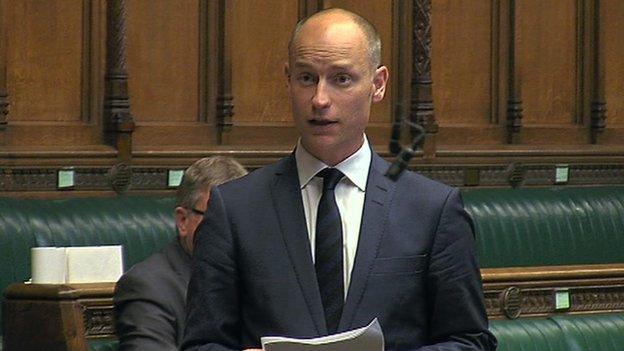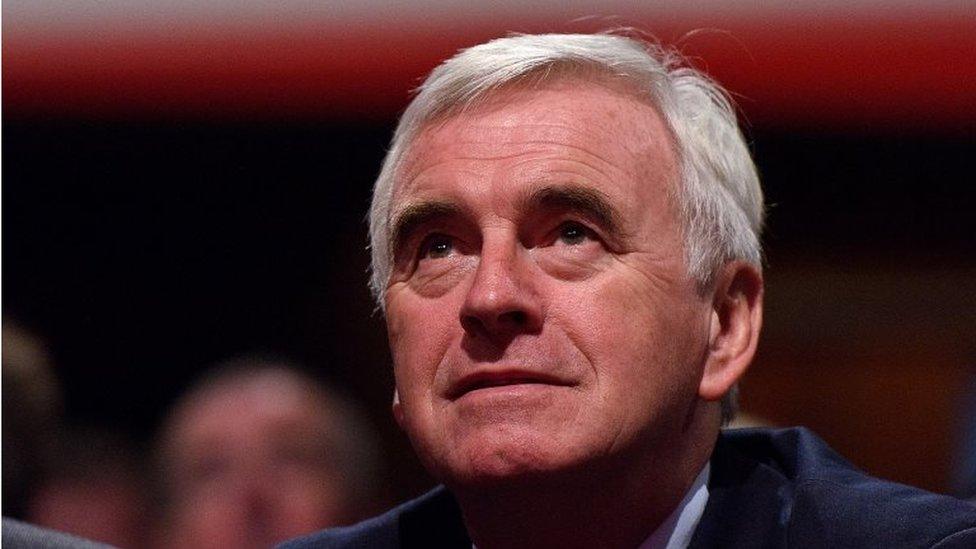Stephen Kinnock rejects Jeremy Corbyn's 'maximum wage'
- Published

Stephen Kinnock was elected to Parliament in May
Stephen Kinnock has poured cold water on Jeremy Corbyn's call for a "maximum wage" to tackle inequality.
The Labour MP and junior business spokesman said it sounded like a good idea but it could be counterproductive.
"I don't think we should be floating ideas like that unless we are clear about whether they would work in practice," he told BBC News.
Mr Corbyn suggested the maximum wage idea during his successful Labour leadership campaign.
He told The Herald, external: "Why is it that bankers on massive salaries require bonuses to work while street-cleaners require threats to make them work? It's a kind philosophical question really. There ought to be a maximum wage. The levels of inequality in Britain are getting worse."
'Mood music'
Mr Kinnock, son of former Labour leader Lord Kinnock, said he preferred to "nudge" business towards senior executive wage restraint by making the "business case" for it rather than raising "moral" objections.
He told a fringe meeting: "I have very little problem with outstanding executives receiving proportionate bonuses but when eye-watering bonuses are extended to people simply for doing their jobs, or worse in the case of RBS in the wake of the crash, doing their jobs badly."
He said the party had to be careful about the "mood music" it was playing towards the business community.
But, speaking after the meeting, he said Mr Corbyn was "coming across as a leader who is ready to compromise, he is ready to listen and is ready to come to an accommodation" which would ensure Labour was on the side of workers while recognising the vital role played by the private sector.
'Throwaway comment'
Asked if it was helpful to have a shadow chancellor in John McDonnell, who lists plotting the "overthrow of capitalism" among his hobbies in Who's Who, he said: "I haven't spoken to John about that particular comment.
"I'm assuming he's done that as a joke and as a flippant throwaway comment. I really doubt that that's what he believes."

John McDonell's Who's Who entry has raised eyebrows
He said his role as Parliamentary Private Secretary to shadow business secretary Angela Eagle was to build "deeper engagement between the Labour Party and the business community".
He added: "There might be some differences around policy but we have to make absolutely clear that the party is pro-business, understands the very important role that the private sector plays in driving economic growth and jobs."
He said he wanted to identify "five to 10" FTSE 100 chief executives to work with Labour on producing "a set of recommendations about how a Labour government can and will work in partnership with big business to accelerate the shift to more balanced and sustainable growth, and business models that are based on more responsible corporate cultures".